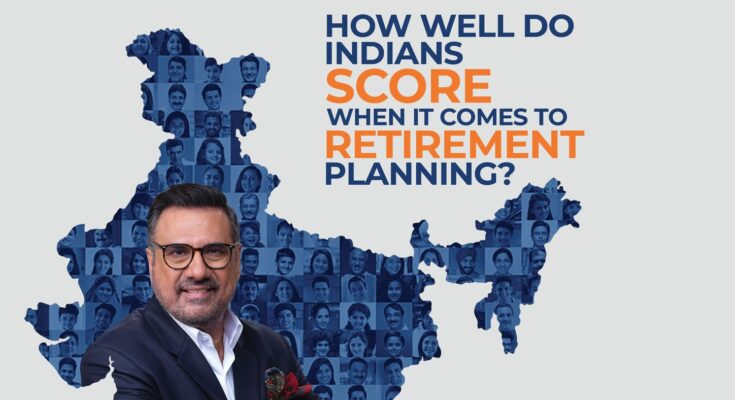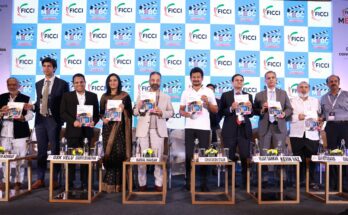Max Life study reveals only 1 in 3 Indians prioritize financial readiness for retirement
India Retirement Index remains at 44 in second edition of survey; dependence on family and children continue to be major barriers to plan for retirement investment
- 23% Indians do not even know where to begin their retirement planning
- Nearly 9 in 10 above age 50 regret not saving/investing towards retirement sooner
- Strong belief in ‘earlier the better’ for majority, as 59% believe savings will be exhausted within 10 years of retirement
- 69% consider life insurance as the most suitable product for retirement savings
- Retirement readiness highest in East Zone and Metros
- Men appear to be more financially anxious than women even though Index for both remain nearly same
29th September 2022, Chennai: Max Life Insurance Company Ltd. (“Max Life”/ “Company”), in partnership with KANTAR, today launched the second edition of the ‘India Retirement Index Study’ (IRIS). The survey assesses urban India’s readiness to live a healthy, content, and financially independent retired life. Through a self-administered digital study*, 3,220 respondents were surveyed across 28 cities comprising 6 metros, 12 Tier I and 10 Tier II cities.
While India’s life expectancy is consistently rising over the years, the survey reveals the underlying preparedness levels for retirement in the country over the last year. At 44, India’s Retirement Index (on a scale 0 to 100) reflects lag in urban India’s action on retirement planning in the one-year period. Health and financial preparedness stood at 41 and 49 respectively, while emotional preparedness witnessed a significant dip from 62 to 59 indicating increasing dependency on family, friends, and social support during retirement.
Commenting on the launch of IRIS 2.0, Prashant Tripathy, Managing Director and CEO, Max Life Insurance said, “As India’s life expectancy increases and health trends change, the country’s elderly population is projected to grow nearly 41% to 194 million by 2031 [1]. There is also a review underway of the retirement age in India to align it with the increasing life expectancy. As industry and wider ecosystem take steps in a positive direction, the robust and well-represented study reveals that Indians are also realizing the need to plan for retirement early. However, the awareness is yet to translate into action in terms of proactively saving and investing. When it comes to retirement planning, all Indians must embrace ‘earlier the better’ philosophy and start planning at a young age, to ensure their retirement years provides them an opportunity to live a healthy and financially independent life. As we unveil the findings of IRIS 2.0, we urge India to realize the importance of timely retirement planning and encourage them to work towards securing their future.”
Soumya Mohanty, Managing Director and CCO, Insights Division, South Asia, Kantar, remarked on the findings of the survey, “IRIS 2.0 offers a compelling perspective on how urban Indians view and plan for retirement. It aims to help Indians comprehend the approach and give due importance of planning for retirement in their lives. In today’s world, it’s important to stay financially independent at all times, especially during one’s retirement years. We are pleased to partner with Max Life Insurance in safeguarding urban India’s financial security across all stages of life.”
Urban India’s outlook towards retirement
IRIS 2.0 reveals urban Indians maintain an overall positive outlook on retirement. 70% associate it with positive thoughts such as ‘more time to take care of family’, ‘tension free life’ and ‘greater prospects of luxury/travel’. In contrast, 30% or 3 in 10 associate retirement with negative sentiments, of which 6% cite that they ‘might not be very fit and healthy’, 5% fear ‘not having enough financial savings’.
Despite this, financial considerations rank lower in order of priority when it comes to retirement planning. While 59% think ‘health’ as the most critical aspect during their retired life, only 31% consider ‘finances’ the most impo rtant and 10% regard ‘emotional support’ as most crucial.
Are Indians financially prepared for a secured retired life?
According to a World Economic Forum report[1], India has a significant retirement to savings gap that is further estimated to exacerbate in the coming decades. Concurrently, IRIS 2.0 observed 59% (as opposed to the earlier 56%) believe that their savings will be exhausted within 10 years of retirement. In fact, 86% respondents over age 50 years regret that they didn’t start investing earlier towards retirement.
But there is gradually an increase in awareness of the right age to start retire ment planning. A significant 44% sa id that retirement is the first thing one should plan for when they start working, while 33% felt that one should start planning for retirement before the age of 35.
Yet, 37% have still not invested in any financial products for retirement. Depe ndence on family wealth and child ren continue to be prime barriers for retir ement investment. 42% have not invested for retirement because they believe they have enough family wealth to fall back on, 39% believe their children will take care of them, wherea s 23% do not know where to start – revealing a glaring gap in financial awareness.
With inflation in India on the rise amidst economic uncertainty, a greater 29%, as opposed to earlier 18%, ide ntify it as a key trigger for retirement planning. Around 50% urban Indians were recommended retirement pla nning by family/spouse, while 43% were nudged by their financial advisors. This trend underscores a proactive approach towards retirement planning is yet to take place.
When it comes down to the share of wallet for retirement investments, 69% respondents considered life insu rance as the most suitable product for retirement savings but only 42% were found to be investing in it for their retirement. Fixed deposits/RD at 28% was the second-most invested asset followed by health/medical insurance at 19%.
What is urban India’s readiness for a healthy retirement?
The survey brought to light that 4 out of 5 Indians (79%) are hopeful of being ‘hale and hearty’ in their retirem ent years however only 40% indulge in any fitness activities. Despite the pandemic bringing the importance of health and wellness to the forefront, only half of the respondents (55%) surveyed had taken any preventive or wellness check-up over the last three years. The rest 45% had not undergone any health check-up in the same period.
How emotionally ready is India for its retirement?
Despite the trend of nuclear family households continuing (65%) – urban India’s dependence on family remains high when planning for retirement. At 54%, over half of urban India or 1 in 2 prefer living with their children post retirement. Moreover, 26% Indians, as opposed to an earlier 21% now worry about being lonely during their re tirement life.
Other key findings
With a retirement index of 51, East outperformed other zones on overall preparedness towards retirement. We st came a close second with retirement index of 46 while South stood at 43 and North at 41. With a retirement index of 46, metros felt most prepared for retirement. Tier 1 cities demonstrated a retirement index of 44, foll owed by Tier 2 cities at 42.
Men had an overall retirement preparedness index of 45 while women stood at 44. While the index remained eq ually low for both genders, men appeared to be more financially anxious than women. 53% men worried about savings during retirement, in comparison to 49% women: 38% worried about managing luxury expenses in cont rast to 33% women. Furthermore, 27%, men worried more about loneliness during retirement as opposed to 24 % women, reflecting greater emotional anxiety.
To financially protect Indians during their retirement years, Max Life Insurance announced the launch of Max Life Pension Fund Management Limited in August. Establishing the pension fund management subsidiary is a critical lever of Max Life’s growth strategy of becoming a dominant player in the retirement space. Additionally, the life insurer plans to introduce products focused on annuity and retirement, enhancing focus on driving op portunities in the segment.
About India Retirement Index Study
India Retirement Index Study is an annual retirement study by Max Life Insurance. The survey aims to unders tand the retirement readiness of Urban India, with insights into awareness, aspirations and challenges of cons umers during retirement and it’s planning. India Retirement Index is the degree to which Indians feel prepared for tomorrow’s retired life on a scale 0 to 100. It is based on how prepared India is for a healthy, peaceful & finan cially independent post-retirement life.
About Max Life Insurance (www.maxlifeinsurance.com)
Max Life Insurance Company Limited is a Joint Venture between Max Financial Services Limited and Axis Bank Limited. Max Financial Services Ltd. is a part of the Max Group.
Max Life offers comprehensive protection and long-term savings life insurance solutions, through its multi-chan nel distribution including agency and third-party distribution partners. Max Life has built its operations over tw o decades through a need-based sales process, a customer-centric approach to engagement and service delivery and trained human capital.
As per public disclosures and annual audited financials for FY2021-22, Max Life has achieved a gross written pr emium of INR 22,414 crore. As of 31st March 2022, the Company had INR 1,07,510 crore of assets under man agement (AUM) and a Sum Assured in Force of INR 11,74,515 crore.
For more information, please visit the Company’s website at www.maxlifeinsurance.com
About Kantar
Kantar is the world’s leading marketing data and analytics company. We have a complete, unique and rounded understanding of how people think, feel and act; globally and locally in over 90 markets. By combining the deep expertise of our people, our data resources and benchmarks and our innovative analytics and technology, we help our clients understand people and inspire growth.
For more information, please visit www.kantar.com
[1] https://theprint.in/india/indias-elderly-population-to-rise-41-over-next-decade-to-touch-194-mn-in-2031-govt-report/710476/
* Self-Administered Digital Study (Recruited Offline; Responded Online)
[1] http://www3.weforum.org/docs/WEF_Investing_in_our_Future_report_2019.pdf





